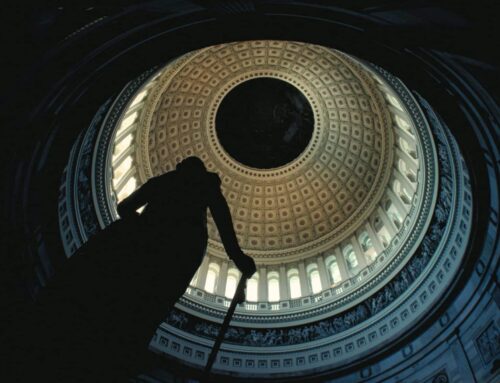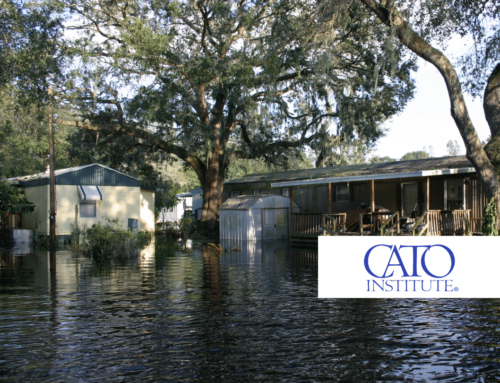Conventional wisdom says the more remote the airport … the more expensive the flight. But a little-known federal program has been turning that logic on its end – for decades. The $288 million “Essential Air Service” (EAS) program provides generous government subsidies for flights to more than 170 rural towns – including flights to several communities near New York’s border with Canada.
Recent available fares include:
$59 from Massena, NY to Boston, MA
$59 from Saranac Lake, NY to Boston, MA
And $60 from Ogdensburg, NY to Albany, NY
Those tickets may sound like exceptional deals. But there’s a catch. Uncle Sam is footing much of the bill.
According to records made public by the US Department of Transportation, this year the federal government plans to spend $15.5 million dollars on subsidies that prop up flights to five small upstate New York towns: Massena, Ogdensburg, Plattsburgh, Saranac Lake, and Watertown. That, despite a 2014 Government Accountability Office report that said EAS flights, on average, had only 49% of their seats filled with paying customers. That compares with an average of 83% for market-rate domestic flights.
“I think taxpayers everywhere should be angry about this,” said Steve Ellis, Vice President of the non-partisan group, Taxpayers for Common Sense. “These companies are paid by the flight, so they’ll take off with zero passengers.”
Ellis’s group has been pushing Congress to eliminate or at least curtail the EAS program for years. But rural communities that benefit from the subsidies have proven formidable adversaries.
Steve O’Shaughnessy, the Massena Town Supervisor, said federal cash for his local airport is an economic lifeline, keeping local businesses connected to the rest of the American economy.
“We’re more of an industrial-based community. We have Alcoa and the New York Power Authority,” O’Shaughnessy said. “They use these flights quite a lot. We would definitely be in a bad spot if we didn’t have that.”
Because all of the New York towns receiving EAS subsidies are close to the Canadian border, it makes sense that lots of travelers booking the cheap flights live in Ontario or Quebec. On a recent flight from Massena, NY to Boston, the I-Team found Matt Khatchadourian, a suburban Montreal native who now works in Boston. He drove across the border to snag the federally-funded deal.
“Sixty dollars, tax in, for a one way flight versus flying Boston to Montreal direct. That would have been three or four times the price,” Khatchadourian said. “That’s a great deal.
Ontario’s Debbie Brennan drove across the border to catch the flight from Ogdensburg to Albany. “The flight I’m on today was $29 dollars US,” she said.
Travelers aren’t the only ones benefiting from bargain airfare to small towns. Small airlines can make a steady profit by signing up to fly the rural routes.
Cape Air, a Massachusetts company, serves a total of 16 different EAS towns. Last year, the company reported flying 11,709 passengers between Albany and Ogdensburg. The federal government paid Cape Air just over $2.7 million for the Ogdensburg service. With its Ogdensburg-bound and departing planes, on average, 69 percent full, that amounts to a federal subsidy of just over $230 per passenger.
“Cape Air’s 9-seat aircraft provide higher-frequency service in EAS communities, adding flight times – and therefore convenience for travelers,” Lorino said in an email to the I-Team. “This helps Cape Air be an efficient airline in the Essential Air Service program, and fly higher load factors than larger aircraft with fewer scheduled flights.”
This month, the US Department of Transportation switched to a new airline to serve Ogdensburg – Sky West. The new deal swaps Cape Air’s $2.7 million annual contract – with $3 million annual contract for Sky West to fly between Chicago and Ogdensburg. The increase in contract cost is a recurring theme in the EAS program.
According to a 2018 Congressional research report, the inflation-adjusted cost of the EAS program has ballooned 132 percent in the last decade, and 600 percent since 1996.
A spokesperson for USDOT sent the I-Team an email insisting the Trump Administration has fought to cut down on costs, including asking Congress to eliminate waivers that allow communities to continue receiving funds despite failure to meet EAS program rules.
“The reforms would save taxpayers’ money by removing communities from the program that fail to meet Congressionally-mandated standards for passenger subsidies and number of passengers,” the email read.
But Ellis said the USDOT could stop granting waivers whenever it wants – without Congressional approval.
“They’re the ones that keep issuing these waivers and it’s almost 100 percent, If a community applies for a waiver – they get a waiver,” Ellis said. “I haven’t seen any interest in Congress taking this up and I haven’t seen the Trump Administration really pushing hard to make this a reality.”











Get Social